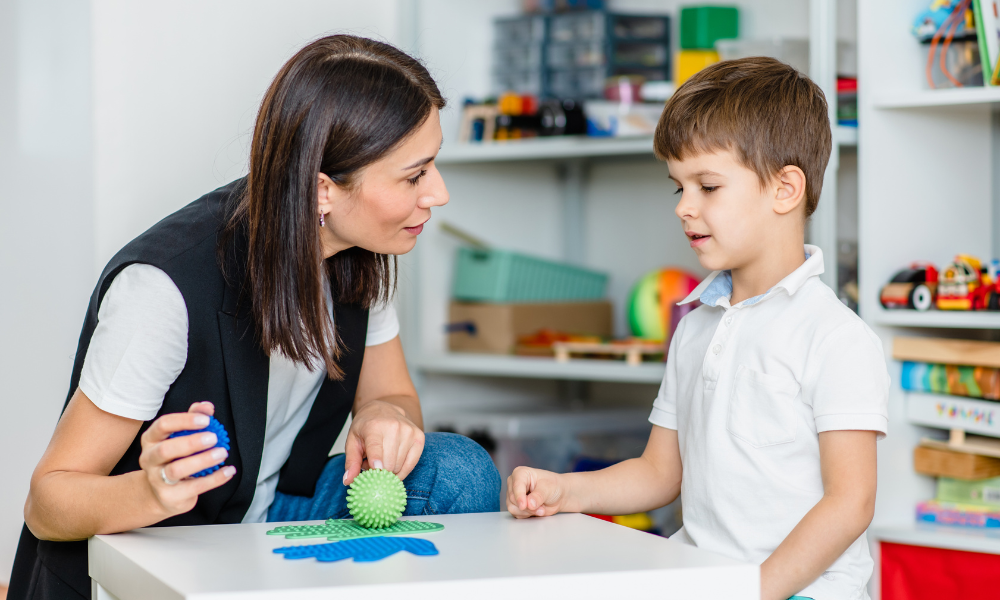Signs of Autism in Infants and Children
While every child develops at their own pace, there are certain behaviors that, when observed together, may indicate a need for further assessment. The following list outlines some specific areas where children on the autism spectrum might show differences:
- Avoids or does not keep eye contact
- Does not respond to name by 9 months of age
- Does not show facial expressions like happy, sad, angry, and surprised by 9 months of age
- Does not play simple interactive games like pat-a-cake by 12 months of age
- Uses few or no gestures by 12 months of age (for example, does not wave goodbye or clap)
- Does not share interests with others by 15 months of age (for example, does not show you an object that they like)
- Does not point to show you something interesting by 18 months of age (for example, does not point to an airplane passing by in the sky)
- Does not notice when others are hurt or upset by 24 months of age
- Does not notice other children and join them in play by 36 months of age
- Does not pretend to be something else, like a teacher or superhero, during play by 48 months of age
- Does not sing, dance, or act for you by 60 months of age
Restricted or Repetitive Behaviors or Interests
Individuals of all ages with Autism Spectrum Disorder (ASD) often exhibit distinctive behaviors or interests that extend beyond social communication challenges.

These characteristics, present across all age groups, can manifest in various ways.
For instance, young children might engage in repetitive movements like hand-flapping or rocking, while older children may develop intense fascinations with specific topics, collecting detailed information about their areas of interest. At all ages, individuals with Autism might display a strong adherence to routines or rituals, experiencing distress when these are disrupted. Some may also show heightened sensitivity to sensory stimuli, such as sounds, textures, or lights.
It’s important to note that these behaviors or interests, while sometimes appearing unusual to others, often serve a purpose for the individual with ASD, providing comfort, enjoyment, or a sense of control. Understanding these traits is crucial in supporting individuals with ASD throughout their lifespan, as these characteristics often persist and evolve with age.
Restricted or Repetitive Behaviors and Interests That Could be Early Signs of Autism Include:
- Lines up toys or other objects and gets upset when order is changed
- Repeats words or phrases over and over (called echolalia)
- Plays with toys the same way every time
- Is focused on parts of objects (for example, spinning the wheels on a toy car)
- Gets upset by minor changes
- Has obsessive interests
- Must follow certain routines
- Flaps hands, rocks body, or spins self in circles
- Has unusual reactions to the way things sound, smell, taste, look, or feel

Other Signs of Autism
People with Autism Spectrum Disorder can have other related characteristics, delays, and disorders. These might include:
- Delayed language skills
- Delayed movement skills
- Delayed cognitive or learning skills
- Hyperactive, impulsive, and/or inattentive behavior
- Epilepsy or seizure disorder
- Unusual eating and sleeping habits
- Gastrointestinal issues (for example, constipation)
- Unusual mood or emotional reactions
- Anxiety, stress, or excessive worry
- Lack of fear or more fear than expected
It is important to note that children with ASD may not have all or any of the behaviors and characteristics listed as examples here. Each child is unique, and autism cannot be diagnosed based on signs alone.
I think my child might have ASD – What Do I Do?
If you have noticed signs of autism in your child and believe they might have ASD, the next step is to get an autism assessment. Pathways by Behavioral Framework provides comprehensive evaluation and diagnostic services for children up to the age of 21. Our psychologists are experts in child development and also assess for other conditions with similar signs, like ADHD.
